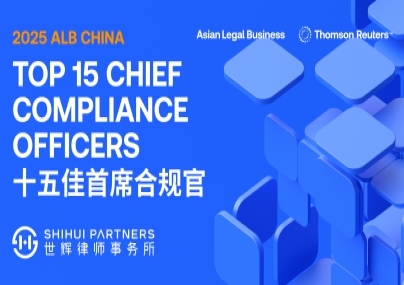The Internet finance boom hit a brand new milestone last month, when 10 Chinese government agencies laid out a broad regulatory framework for this business, which is hugely lucrative but comes with startling risks.
The 6,000-word document tries to lay ground rules for the industry for the first time and specifies which agency is in charge of which type of Internet-finance institutions. More details on the regulations from different government agencies are expected to follow soon.
In defining Internet finance, the document summed up six categories, namely online payment, Internet loans, equity crowdfunding, Internet sale of funds, Internet insurance and Internet trust and consumer finance.
“The document has made it clear that Internet finance belongs to finance, and shall be supervised like financial institutions,” said Wan Jun, a lawyer at Han Kun Law Offices.
Turfs were assigned to different regulatory agencies to address the previously murky division lines. The online payment platform will be regulated by People’s Bank of China, while the China Banking Regulatory Commission will preside over Internet loans, trust and consumer finance. Meanwhile, the China Securities Regulatory Commission will supervise online funds selling and equity crowdfunding.
In the past few years, Internet finance has been undergoing what many experts call a “barbarous growth”, with thousands of companies operating amid a vacuum of rules. The recent move to regulate this thriving industry is a positive step towards transforming itself into a more legitimate sector.
In drawing up the guidelines, however, regulators need to carefully weigh the interests of different parties. “The draft itself indicates government’s strong intention to encourage innovations.” Wan said. “But still, you can sense they are favoring traditional financial institutions or mature Internet giants.”
The rules signal an obvious intention to protect the interest of existing financial institutions, especially state-owned banks. But according to some industry insiders, these moves could threaten the very existence of most peer-to-peer or P2P lending platforms.
P2P TRANSFORMATION
P2P lending has grown rapidly in the past two years, as the platform links people or small business that need loans with potential lenders, circumventing banks which usually favour big, state-owned enterprises.
P2P lending has loans outstanding around $33.7 billion by the end of June. The number of P2P lending companies nationwide rose from 1,627 in January to 2,028 in June.
However, the number of non-performing P2P platforms also shot up from 59 in May to 125 in June, underlining the risks of Internet financial products, according to data from www.wangdaizhijia.com, an online lending information and exchange platform.
Despite massive growth, the sector has been plagued constantly by questionable sales maneuvers, with some platform operators absconding with clients’ funds.
As such, some experts said it comes as no surprise that the new rules seek to draw a clear line between Internet finance companies and banks. Under the guidelines, P2P platforms are identified as intermediaries between borrowers and lenders and are forbidden from providing guarantees or taking deposits.
Previously, P2P companies used third-party payment companies as custodians for the funds that investors deposit on the platforms. The new rules have made it clear that only banks can be the custodians, posing a potential risk for most P2P platforms, especially the smaller ones, as they have to switch to banks (which are usually reluctant to work with small businesses) for fund deposit.
“By the time China Banking Regulatory Commission unveiled specific rules, many companies in our industry would face bankruptcy. I assume 90 percent of the platforms will face a shutdown or forced transformation,” said Xu Jianwen, CEO of renrenmoney.com, in a public response to the new regulations.
But many still applaud the government’s decision to reserve fund custodies for banks, as they are always strictly supervised. Moreover, the new regulations should prevent P2P companies from “running away” from their customers’ money.
In this case, P2P companies would have no choice but to work with banks for future fund custody, preparing for their next step. And the P2P industry in general would be subject to high regulatory volatility.
“From a short-term perspective, the new rules may cause pains. But we have been lacking regulations for a long time, leading to the emergence of high risks,” said Wan from Han Kun Law Offices. “Now, we are doing something we have to do.”
All are still anxiously awaiting the yet-to-come details on specific regulations, which could decide the fate of many small Internet finance companies.
But one thing is certain: gone are the days when Internet finance could grow unregulated. P2P companies, third-party payment platforms, even the regulators each have their own battles to fight to create a more legitimate industry.
It’s going to be a bumpy road ahead.


